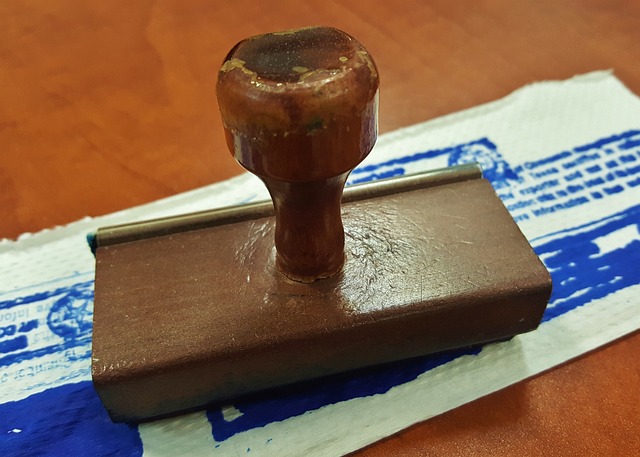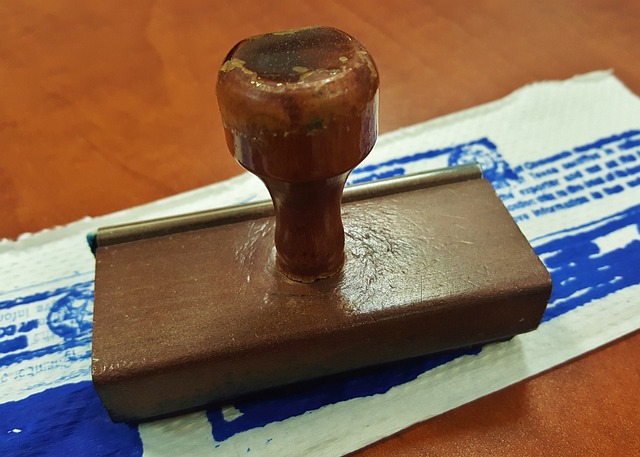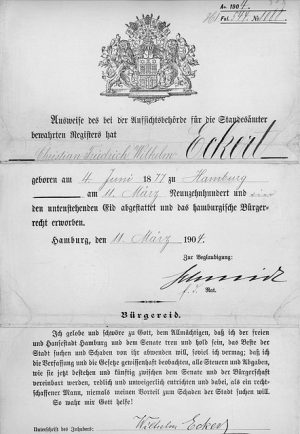In the UK's legal system, notarised translation services UK are essential for accurately translating and authenticating foreign language documents, ensuring they meet stringent legal standards required by courts and official entities. A professional translator with expertise in legal terminology performs the initial translation, which is then verified and stamped by a notary public as both accurate and complete. This process confirms that the translated content corresponds precisely to the original document, thereby making it legally admissible. It's crucial for clients requiring such services to choose translators who are accredited by professional bodies and to allow ample time for the translation process to avoid any potential delays or errors that could jeopardize legal proceedings. Opting for a service that provides both certification and notarisation streamlines the process, ensuring that your translated documents will be accepted without complications in UK courts or legal entities.
navigating the complexities of legal proceedings within the UK’s judicial system often necessitates the engagement of notarised translation services to ensure clarity and legal compliance. This article delves into the critical role such services play, from the types of documents that require meticulous notarisation to the selection of a trustworthy service provider. We will explore the intricacies of the UK’s legal framework as it pertains to translations, the process of notarising documents, and the implications of opting for less formal translation services. By understanding these components, individuals and legal entities can effectively manage their multilingual documentation needs, thereby upholding the integrity and validity of their legal endeavours in the UK.
- Understanding the Necessity of Notarised Translation Services in Legal Proceedings within the UK
- The Role of Notarised Translations in UK Courts and Tribunals
- Key Types of Documents Requiring Notarisation for Legal Transactions in the UK
- Identifying a Reliable Notarised Translation Service Provider in the UK
- The Process of Notarising Translations: Steps and Considerations
- The Legal Implications of Unnotarised Translations in UK Legal Proceedings
- Comparing Certified and Sworn Translation Services in the UK Context
- Navigating the Language Requirements for Legal Proceedings in the UK's Courts
- Tips for Ensuring Accuracy and Compliance in Notarised Translations for Legal Use in the UK
Understanding the Necessity of Notarised Translation Services in Legal Proceedings within the UK

In the legal sphere, accuracy and authenticity are paramount, especially when documents must be presented in a language other than English within the UK. Notarised translation services UK play a critical role in ensuring that legal texts are accurately translated and hold the same legal weight as their original versions. The necessity for these services arises from the UK’s multicultural society and its frequent engagement in international legal matters where parties may not share a common language. A notarised translation serves to confirm that the translation is complete, accurate, and a true representation of the original document, which is essential for the document to be admissible in UK courts. This process involves a qualified translator, who is often a member of a relevant professional body, translating the text and then having it certified by a notary public as being a faithful rendition of the source material. The use of such services not only facilitates justice and fairness for all parties involved but also helps to uphold the integrity of legal proceedings by preventing misunderstandings or misrepresentation due to language barriers. This meticulous verification is indispensable, as it removes any ambiguity about the authenticity of translated documents, ensuring that every party has a clear understanding of the legal content in question.
The Role of Notarised Translations in UK Courts and Tribunals

In legal settings, the accuracy and integrity of written documents are paramount. When legal proceedings involve parties who speak different languages, the need for precise communication becomes even more critical. Notarised translation services UK play a pivotal role in ensuring that all parties involved have equal access to justice by providing translated documents that are legally recognised and certified. These translations are notarised, which means they have been verified and stamped by a qualified and impartial third party—a notary public—who attests to the authenticity of the original document and its translated version. This notarisation process is in line with the UK’s strict legal standards, making the translations admissible as evidence in court and before tribunals. It is essential for legal entities and individuals alike to engage with reputable notarised translation services UK when dealing with cross-lingual legal documents, as these translations facilitate a fair and transparent legal environment.
The UK’s legal system demands meticulous attention to detail, especially in cases involving non-English speakers. Notarised translation services UK are integral to the functioning of courts and tribunals, as they ensure that all documentation is understandable and legally binding in the language of the party concerned. This service goes beyond mere linguistic translation; it encompasses the precise conveyance of legal terminology and concepts, which can be particularly challenging across different languages. The notary’s role extends to confirming the translator’s identity and qualifications, as well as the accuracy of the translation, thereby safeguarding the integrity of the legal process. Access to such professional services is indispensable for the judicial system to operate fairly and effectively in a multicultural society like that of the UK.
Key Types of Documents Requiring Notarisation for Legal Transactions in the UK

When engaging in legal proceedings within the UK, the accuracy and authenticity of foreign language documents are paramount. Notarised translation services in the UK play a crucial role in ensuring that all translated documents meet the stringent requirements set forth by the legal system. Key types of documents often necessitating such services include contracts, corporate records, court documents, and official certificates. Contracts, for instance, must be accurately translated to reflect the precise terms and conditions agreed upon by parties involved, especially when they are from different linguistic backgrounds. Corporate records require meticulous translation to maintain transparency and adherence to UK company law. Court documents, whether for submission or as evidence, need to be notarised translations to ensure they are admissible in a court of law within the UK. Similarly, official certificates like birth, marriage, and death certificates must be translated and notarised to validate personal identity and legal status. Engaging professional notarised translation services in the UK ensures that all such documents are legally compliant and carry the same weight as their original versions, facilitating smoother transactions and compliance with legal formalities.
Identifying a Reliable Notarised Translation Service Provider in the UK

When legal proceedings require documentation in a language other than English, obtaining a notarised translation becomes imperative for the accuracy and legality of the documents involved. In the UK, the precision and credibility of such translations are paramount due to the legal ramifications they carry. To ensure that you receive a reliable notarised translation service in the UK, it is crucial to select a provider with a proven track record and expertise in legal translations. Look for translation services that offer certifications and have a robust system for notarisation to guarantee the authenticity of the translations. The UK’s legal landscape demands adherence to strict standards, particularly under the Equality Act 2010, which mandates that all individuals must be able to access information in a language they understand. Therefore, opting for a service provider that is well-versed in these legalities and accredited by relevant authorities, such as the Chartered Institute of Linguists or the Association of Translation Companies, will provide peace of mind. Always verify the credentials of your chosen notarised translation service provider, ensuring they are authorised to offer notarisation and that their translators possess the necessary qualifications to handle legal documents. This due diligence is essential for maintaining the integrity and validity of your translated legal documents within the UK’s jurisdiction.
The Process of Notarising Translations: Steps and Considerations

In the UK, legal proceedings often necessitate precise and notarised translation services to ensure that all parties involved have a clear understanding of the content in question. The process of notarising translations is meticulous and involves several critical steps to uphold legal integrity and accuracy. Firstly, the original document must be provided to a qualified translator who possesses the necessary expertise in both the source and target languages. This professional must be adept at translating legal terminology accurately to prevent any misunderstandings or misrepresentations within the text. The translation is then reviewed against the original document to ensure complete fidelity.
Once the translation is confirmed to be accurate, it is presented to a notary public for notarisation. A notary public in the UK is a public officer who can authenticate the identity of the person signing the document and attest that the document’s contents are a true and faithful representation of what the translator has translated. This official must be appointed by the Archbishop of Canterbury, as per the Notaries Act 1997. The notary will then apply an official seal or stamp to the translated document, known as a ‘notarial act.’ This formal endorsement verifies that the translation has been completed professionally and that it is legally binding. In conclusion, engaging with notarised translation services in the UK for legal proceedings requires precise adherence to protocols and a commitment to accuracy, ensuring that all translated documents are legally admissible and enforceable.
The Legal Implications of Unnotarised Translations in UK Legal Proceedings

In the context of UK legal proceedings, the integrity and authenticity of translated documents are paramount. Unnotarised translations can pose significant legal implications due to their unverified nature. These translations lack the official endorsement that a notarised translation provides, which is crucial for legal documents to be accepted as evidence in court. Notarised translation services UK are specifically designed to address these concerns by ensuring that translated content is accurate and has been authenticated by a qualified and authorised notary public. This process involves the translation being checked against the original document, with the translator declaring under oath that the translation is complete and faithful to the source text. The notary’s certification adds a legal weight to the translation, confirming its reliability and admissibility in court proceedings. Consequently, individuals and organisations dealing with legal matters involving non-English speakers must consider the importance of obtaining notarised translations to avoid complications and ensure their case is legally sound. Engaging professional notarised translation services UK is an essential step to navigate the legal system effectively and uphold the due process required in legal proceedings within the jurisdiction.
Comparing Certified and Sworn Translation Services in the UK Context

In the UK, legal documents often require precise and accurate translations to be admissible in court or for official use. Notarised translation services UK play a pivotal role in this context, as they ensure that translations are both faithful to the original text and legally binding. While both Certified and Sworn Translation Services cater to this need, there are distinct differences between the two. Certified Translations are documents that have been verified by a translation professional against a sample of the original document, stamped with their seal or stamp, and accompanied by a statement affirming the accuracy of the translation. This process is generally less formal than its Sworn Translation counterpart.
On the other hand, Sworn Translations are performed by translators who have been officially recognised or appointed by a government body, such as the Instituto Cervantes for Spanish or the Ministry of Justice for French. These professionals translate not only the text but also confirm their identity and qualifications with a signed declaration and an official stamp or seal. The UK’s Notarised Translation Services UK extend beyond mere language translation; they involve a notary public verifying the translator’s qualifications, authenticating the signature on the translation, and ensuring that the translated document holds the same legal weight as its original version. This rigorous process is essential for international legal proceedings where documents must be universally trusted and recognized.
Navigating the Language Requirements for Legal Proceedings in the UK's Courts

In the UK, legal proceedings often necessitate the presentation of documents in English to ensure clarity and legal validity. For parties involved whose native language differs from English, notarised translation services UK become an indispensable tool for navigating the legal system. These translations are critical as they must accurately convey the contents of foreign-language documents, ensuring that all parties, including the court, have a precise understanding of the content. The process involves a qualified translator providing a certified translation, followed by a notary public authenticating the document’s veracity. This dual verification is essential for the translation to be accepted in UK courts, as it attests to both the linguistic accuracy and the identity of the person who produced the translation.
Choosing reputable notarised translation services UK is paramount, given the legal implications of translation errors. These services are staffed by professional translators with expertise in legal terminology, ensuring that every nuance is captured accurately. The notary public then certifies the translation, verifying its authenticity and confirming that it corresponds with the original document. This meticulous process is integral to upholding justice and maintaining the integrity of legal proceedings within the UK’s judicial system. It allows for a level playing field where language barriers do not impede access to or the fairness of the law.
Tips for Ensuring Accuracy and Compliance in Notarised Translations for Legal Use in the UK

When engaging with notarised translation services in the UK for legal proceedings, accuracy and compliance are paramount. To ensure the translated documents reflect the original text accurately and adhere to UK legal standards, it is crucial to select a translation service that specialises in legal translations. These experts are well-versed in the nuances of both languages and the legal jargon involved, which minimizes the risk of misinterpretation or errors. Additionally, they will be aware of the specific requirements for notarisation within the UK, including the necessity for a qualified translator to sign and stamp each document as proof of its accuracy and completeness. It is also advisable to engage a translation service that offers certification and notarisation under one roof, streamlining the process and ensuring that all necessary steps are taken without the need for additional appointments or documentation. This approach not only saves time but also guarantees that the translated documents will be accepted by UK courts or legal entities without delay.
Furthermore, it is essential to provide the translation service with ample time to complete the task. Rushed translations can lead to oversights and inaccuracies. When commissioning a notarised translation for legal use, always check that the translator is accredited by a relevant professional body, such as the Institute of Translation and Interpreting (ITI) or the Chartered Institute of Linguists (CIOL). This ensures a high standard of expertise and ethical conduct. Lastly, retain the original documents along with the notarised translation for your records, as this may be required for verification purposes. By adhering to these guidelines, you can significantly reduce any legal risks associated with language barriers in UK legal proceedings.
In conclusion, the necessity of employing notarised translation services within UK legal proceedings is paramount to ensure the validity and authenticity of foreign language documents. The meticulous process of notarisation, as outlined in this article, affirms the accuracy and reliability of translations, thus upholding justice and compliance with UK legal standards. For individuals and organisations dealing with cross-border legal matters, identifying a competent provider of these services is crucial for navigating the complexities of legal documentation. By adhering to the guidelines and steps provided in this article, parties involved can confidently present notarised translations as evidence or legal instruments, thereby facilitating fair and equitable proceedings. In the UK, where language diversity is a defining characteristic, these services play an indispensable role in the judicial system, bridging communication gaps and ensuring that legal documents are understood and respected by all parties involved.
